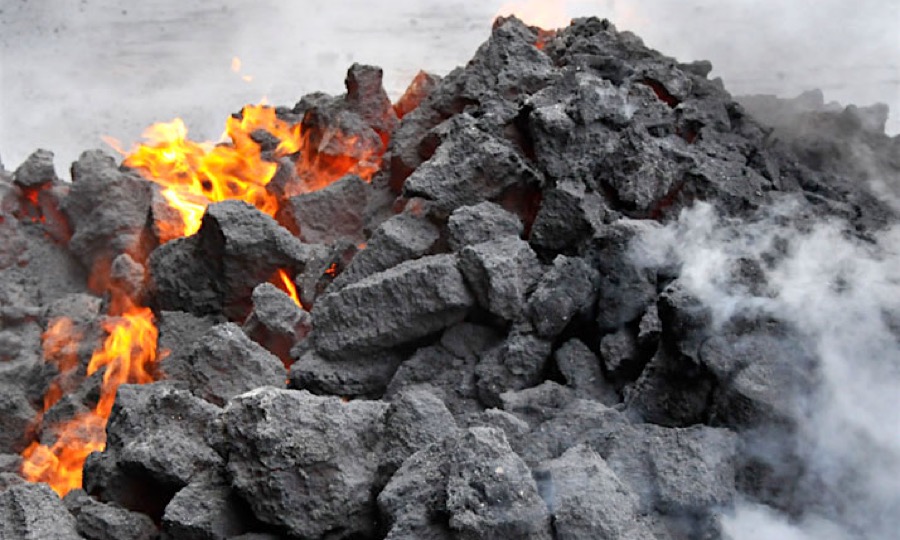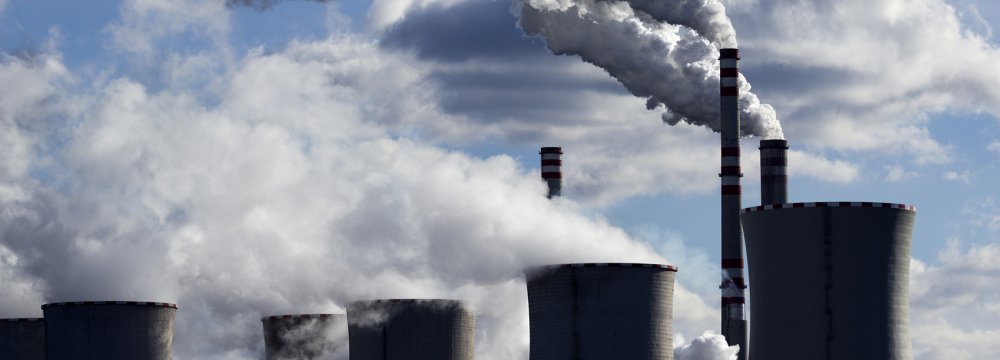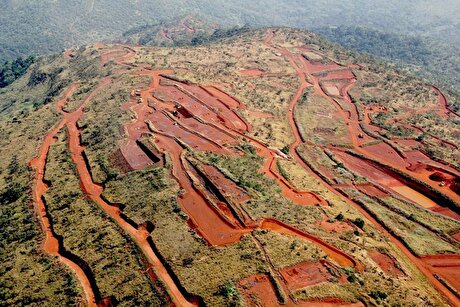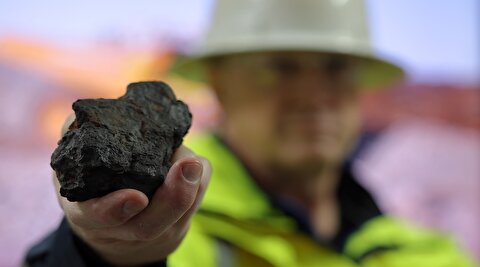
Coal Power Plant Project Runs Into Controversy

 There is a strong consensus among scientists and experts that coal has a severe environmental impact.
There is a strong consensus among scientists and experts that coal has a severe environmental impact.
Reports emerged last week that Iran is taking steps to build its first-ever power plant that would burn coal for electricity generation. The news has invited mixed reactions; environmental groups say that burning coal would cause pollution and contribute to global warming, while officials have spoken up in favor of the plan.
A new financer (the Export Development Bank of Iran) and a consortium of Iranian and Chinese companies are bringing the coal energy project back to life after being shelved for 10 years.
The prospective coal power station near the city of Tabas in South Khorasan Province will have an electricity production capacity of 650 megawatts and feed on the nearby Mazino mine which holds more than 600 million tons of in-place coal.
But is it worth the investment?
The construction of the plant depends on sustainable supply of water to the complex, says Mohsen Tarztalab, managing director of Iran's Thermal Power Plants Holding Company (TPPHC), whose state-owned company is a top policy-making body for building power plants, IRNA reported.
"The coal power plant can be constructed if the Energy Ministry makes sure that the plant will have sustainable access to water for 50-60 years," Tarztalab said, adding that geological surveys are being carried out on the region's underground waters.
But the search for new water resources for power production from a disputed source of energy comes as Iran is grappling with a multiyear exacerbating drought and dwindling rainfall.
South Khorasan is one of the most water-stressed regions in Iran. According to reports, the level of precipitation has plunged to less than 100 millimeters this year, the lowest in 18 years.
Shortage of water in South Khorasan is particularly alarming as more than 90% of precipitation in the province evaporates due to the region's vast desert terrains, according to Hamid Chitchian, the energy minister.
To tackle the worsening crisis, the government is mulling plans to bring water from the Persian Gulf to Iran's parched regions in the east. This plan too has fueled immense criticism and controversy among environmentalists and economic experts who insist on the futility of the proposed undertaking and the environmental cost it will entail.
However, Tarztalab says that the relatively low cost of power generation from coal plants justifies the Tabas project.
Environmental Concerns
The coal power plant also seems to be at odds with Iran's commitment to help reduce global warming. Iran pledged in the Paris climate conference (COP 21) last year to curb the emissions of greenhouses gases by 4% by 2030 and raise its electricity output capacity from renewable energies to 7,500 MW from less than 250 MW.
But building a coal power plant appears to be a step backwards from Tehran's ambitious environmental goals.
There is a strong consensus among scientists and experts that coal has a severe environmental impact. According to reports, coal energy produces tremendous amount of harmful emissions such as carbon dioxide and sulfur dioxide and sulfuric acids that contribute generously to climate change and global warming. The burning of coal is also said to emit roughly twice as much carbon dioxide compared to natural gas to produce the same level of heat. It has reportedly triggered acid rain in some regions.
Alireza Daemi, a deputy energy minister, argues that building a coal plant makes sense because it allows Iran to diversify its energy mix which largely comes from thermal plants powered by gas or petroleum byproducts.
"Today the technologies used in coal power plants significantly reduce water consumption in these facilities. Coal plants also produce much less pollution nowadays and this is not in conflict with Iran's pledge at the COP 21," he said.
Global Phase Out
But a global move toward partial or complete phase out of coal power plants suggests it is a little too late for Iran to hop on the coal energy bandwagon.
The UK plans to close its last coal power plant by 2025 in a push to phase out the polluting fossil fuel and replace it with cleaner sources, such as gas, to meet climate commitments. France is keen to shut down all its coal-fired power plants by 2023, President Francois Hollande said last month, vowing to beat the UK's commitment by two years.
Canada is also on its way to officially phase out its coal-fired power plants by 2030 as part of the country's vision for a "clean growth economy".
Germany, the Netherlands, Austria and Finland are also among the growing number of countries with long-term pledges to move toward sustainable and clean forms of energy at the expense of coal power stations.


Gold price edges up as market awaits Fed minutes, Powell speech

Glencore trader who led ill-fated battery recycling push to exit

Emirates Global Aluminium unit to exit Guinea after mine seized

UBS lifts 2026 gold forecasts on US macro risks

Iron ore price dips on China blast furnace cuts, US trade restrictions

Roshel, Swebor partner to produce ballistic-grade steel in Canada

EverMetal launches US-based critical metals recycling platform

US hikes steel, aluminum tariffs on imported wind turbines, cranes, railcars

Afghanistan says China seeks its participation in Belt and Road Initiative

First Quantum drops plan to sell stakes in Zambia copper mines

Ivanhoe advances Kamoa dewatering plan, plans forecasts

Texas factory gives Chinese copper firm an edge in tariff war

Pan American locks in $2.1B takeover of MAG Silver

Iron ore prices hit one-week high after fatal incident halts Rio Tinto’s Simandou project

US adds copper, potash, silicon in critical minerals list shake-up

Barrick’s Reko Diq in line for $410M ADB backing

Gold price gains 1% as Powell gives dovish signal

Electra converts debt, launches $30M raise to jumpstart stalled cobalt refinery

Gold boom drives rising costs for Aussie producers

First Quantum drops plan to sell stakes in Zambia copper mines

Ivanhoe advances Kamoa dewatering plan, plans forecasts

Texas factory gives Chinese copper firm an edge in tariff war

Pan American locks in $2.1B takeover of MAG Silver

Iron ore prices hit one-week high after fatal incident halts Rio Tinto’s Simandou project

US adds copper, potash, silicon in critical minerals list shake-up

Barrick’s Reko Diq in line for $410M ADB backing

Gold price gains 1% as Powell gives dovish signal

Electra converts debt, launches $30M raise to jumpstart stalled cobalt refinery
















